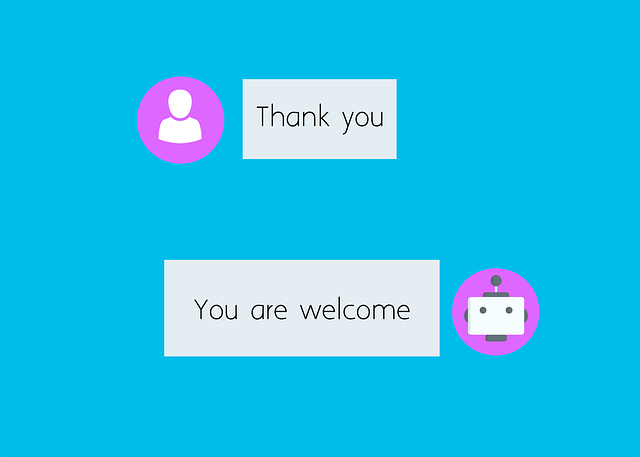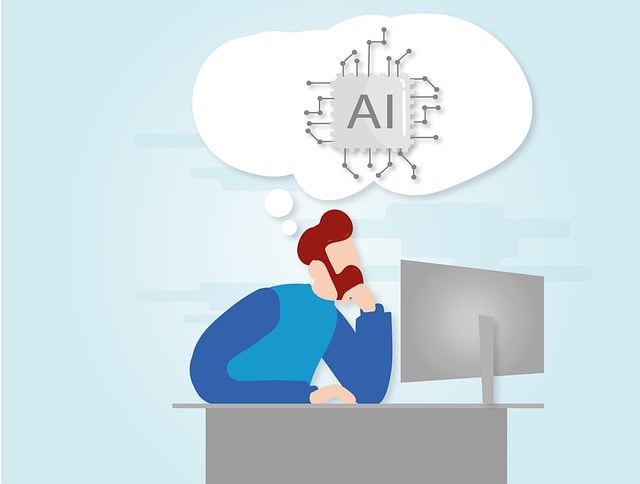AI chatbots and assistants are revolutionizing modern customer service by leveraging NLP for personalized interactions based on user history, behavior patterns, and feedback. They anticipate needs, provide relevant recommendations, and predict future interactions, fostering stronger relationships. In the digital market, AI-driven personalization allows businesses to deliver efficient, effective, and delightful AI customer service, setting them apart from competitors. Key Performance Indicators (KPIs) and qualitative user feedback are essential for refining these models, leading to improved satisfaction and loyalty across various applications.
Personalization is transforming the way we interact with AI chatbots and assistants, revolutionizing user engagement. In today’s digital era, AI technologies, such as advanced chatbots and virtual assistants, are becoming integral parts of our daily lives, offering personalized experiences across various platforms. This article explores how AI chatbots and assistants can enhance user engagement through customized interactions, while delving into strategies for delivering tailored AI customer service. We’ll also measure success by evaluating the impact of personalization in AI.
- Understanding AI Chatbots and Assistants: The Core of Personalization
- Enhancing User Engagement Through Customized Interactions
- Strategies for Delivering Tailored AI Customer Service
- Measuring Success: Evaluating the Impact of Personalization in AI
Understanding AI Chatbots and Assistants: The Core of Personalization

AI chatbots and assistants have become the face of modern customer service, revolutionizing how businesses interact with their clients. These intelligent systems leverage natural language processing (NLP) to understand user queries and provide personalized responses. By learning from user interactions, AI chatbots can adapt to individual preferences, offering a tailored experience that enhances engagement.
The core of this personalization lies in the ability of AI assistants to analyze vast amounts of data, including user history, behavior patterns, and feedback. This information enables them to anticipate needs, offer relevant recommendations, and even predict future interactions, thereby fostering stronger relationships with customers. In the competitive landscape of today’s digital market, AI-driven personalization is a powerful tool for businesses to stand out, ensuring that customer service becomes more efficient, effective, and ultimately, delightful.
Enhancing User Engagement Through Customized Interactions

In today’s digital landscape, AI chatbots and assistants are transforming the way businesses interact with their customers. By leveraging advanced algorithms and machine learning capabilities, these AI solutions can tailor interactions to individual users, creating a personalized experience that enhances engagement. For instance, an AI customer service agent can remember a user’s previous inquiries, preferences, and even tone of voice, allowing for more meaningful conversations and faster resolution. This level of customization not only improves user satisfaction but also fosters trust and loyalty towards the brand.
Furthermore, AI-driven personalization goes beyond simple interaction history. It involves analyzing user behavior, demographics, and feedback to anticipate needs and deliver relevant content or recommendations. Whether it’s suggesting products based on past purchases or providing tailored support articles, this proactive approach keeps users interested and involved. As a result, businesses can increase customer retention, drive sales, and build stronger relationships with their audience through these customized interactions.
Strategies for Delivering Tailored AI Customer Service

Personalized AI chatbots and assistants are transforming customer engagement by offering tailored services that cater to individual needs. Strategies for delivering this enhanced experience include leveraging user data and behavior patterns to anticipate and fulfill requests proactively. By analyzing past interactions, preferences, and demographics, AI models can provide contextually relevant responses, recommendations, and solutions.
Implementing natural language processing (NLP) enables these AI tools to understand and interpret user queries accurately, ensuring that every exchange feels unique and helpful. Additionally, incorporating machine learning algorithms allows for continuous improvement in service quality over time. This dynamic approach means AI chatbots and assistants can adapt to evolving customer needs, preferences, and trends, fostering deeper engagement and stronger brand loyalty.
Measuring Success: Evaluating the Impact of Personalization in AI

Measuring success is a critical aspect of refining AI’s role in enhancing user engagement, especially when it comes to personalization. The impact of tailored experiences should be evaluated using key performance indicators (KPIs) specific to each use case. For instance, an AI chatbot designed for customer service might measure success by tracking the reduction in response times and the increase in satisfied customer ratings. If an AI assistant is helping with content curation, success could be gauged by user retention rates and engagement levels over time.
Moreover, qualitative feedback from users can provide valuable insights into the effectiveness of personalization. This may include surveys, reviews, or direct interactions where users share their experiences and preferences. By combining quantitative data with user feedback, developers can fine-tune AI models to offer more meaningful and personalized experiences, ultimately improving user satisfaction and loyalty in various applications such as AI customer service, content recommendation, and virtual assistance.
